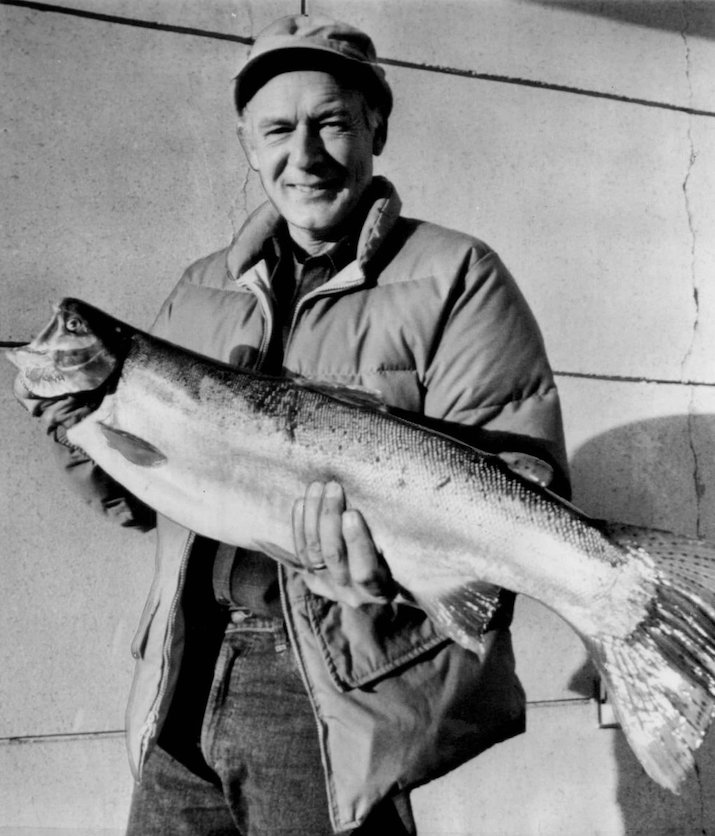forum
library
tutorial
contact

Simpson is Merely
Listening to His Voters
by Marty Trillhaase
Lewiston Tribune, May 2, 2019
|
the film forum library tutorial contact |

|
Simpson is Merely
by Marty Trillhaase
|
Organizers hope to bring diverse participants to the table in Boise later this month for discussion
 To hear Congressman Mike Simpson, R-Idaho, tell it, four dams on the lower Snake River in Washington state offer the people of his state no gain and all pain.
To hear Congressman Mike Simpson, R-Idaho, tell it, four dams on the lower Snake River in Washington state offer the people of his state no gain and all pain.
"I'm getting tired of Idaho paying the costs of those dams and getting none of the benefits," Simpson told the Andrus Center's "Energy, Salmon, Agriculture and Community: Can We Come Together?" conference last week. Simpson never used the phrase "dam breaching," but he sounded like a man who was willing to consider it.
And why not?
Simpson may have sidestepped benefits the dams deliver to a limited corner of northern Idaho, such as jobs, navigation and recreation.
But he doesn't represent port employees, shippers or grain growers in Lewiston or the Palouse.
Nor does he ever intend to.
After 20 years in the House, the veteran 2nd District congressman shows no ambition to run statewide. His attention is focused on Idaho Falls, Pocatello, Twin Falls, Ketchum and Boise. To the people living in those communities, four dams in eastern Washington state are a source of headaches.
Take, for instance, water.
Every year, 427,000 acre-feet of the region's water is flushed downstream to accelerate the river's current and lower its temperature to aid migrating salmon smolts in their journey to the Pacific Ocean.
Begun in the early 1990s, the practice was codified about 15 years ago in an agreement between irrigators, the Bureau of Reclamation, the U.S. Fish and Wildlife Service and the National Oceanic and Atmospheric Administration Fisheries.
The deal traded some flow augmentation for fish in exchange for assurances against future demands for more water from the Upper Snake River Bureau of Reclamation Projects.
But it's still a lot of water. For instance, the roughly 200,000 acre feet drained from the Snake River above Milner Dam near Twin Falls represents about 5 percent of that region's storage capacity -- where there is not a drop to spare.
But it's still a lot of water. For instance, the roughly 200,000 acre feet drained from the upper Snake River represents about 5 percent of that region's storage capacity -- where there is not a drop to spare.
For the sake of argument, say the four lower Snake River dams were removed and the river would be restored to a more natural current. If Simpson's constituents could keep that 427,000 acre feet, they could grow more crops and make more money.
Next come the fish.
Scattered across the 2nd District are depleted salmon and steelhead fisheries:
Restore those fisheries to a healthy, robust population and start collecting the tourist dollars.
Finally, consider electrical power the dams generate. Virtually all of Simpson's district is served by private, investor-owned utilities. A few exceptions -- notably the city-owned Idaho Falls Power -- have contracts with Bonneville Power Administration. Among the factors driving power bills for those consumers is the $16 billion BPA has spent on fish mitigation.
To those folks, it doesn't matter whether grain producers in north central Idaho can ship more cheaply via navigation. They don't care whether the Port of Clarkston is attracting riverboat tourists. They certainly aren't going to lose much sleep if the people working at the ports have to polish their resumes. And they're probably wondering why their representatives in Congress have until now been part of an united Idaho front that looked out for the interests of another congressional district, if not another state.
Simpson, the champion of the decades-long drive to create a Boulder-White Cloud wilderness, is no doubt passionate when he says: "We should not manage just to keep these salmon off the extinction list. We should manage them to bring back a healthy, sustainable population in Idaho."
But Simpson is also an extremely accomplished politician.
This is smart politics.
He knows his constituents.
And those voters are telling him that their interests are not aligned with the lower Snake River dams.
They're telling him to start asking "what if" questions.
Topping the list ought to be: "If the dams go away, why is that our problem? "
However shocking that sounds to members of north central Idaho's dam community, they better learn to live with it.
learn more on topics covered in the film
see the video
read the script
learn the songs
discussion forum
